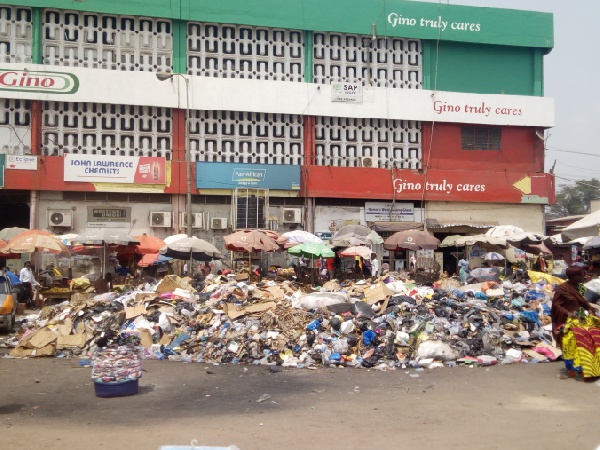By Ibrahim Zanya Salifu
Ghana is facing a growing sanitation emergency as choked gutters turn into breeding grounds for disease, fuel flooding, and degrade living conditions in both urban centers and smaller communities.
From Accra, Kumasi, and Takoradi to rural towns, residents say clogged drainage systems—originally built to channel rainwater—are now overflowing with plastic waste, food scraps, and other debris. The result is stagnant, foul-smelling water spilling onto streets, seeping into homes, and threatening public health.
“I have lived in my neighborhood for more than a decade, and this has been a recurring nightmare,” lamented Madam Genevieve Naa Adoley, a resident of Accra. “Authorities come around only after a disaster strikes. Until then, we are left to suffer the stench, the flooding, and the health risks.”
Field visits to affected areas show gutters crammed with plastic bags, bottles, and decomposing organic waste—some left uncleared for months, even years. The neglect has left communities increasingly vulnerable to flooding during the rainy season and to malaria and other disease outbreaks in its aftermath.
Public health experts warn that government intervention alone cannot solve the crisis. “If we don’t change our attitude towards littering and take responsibility for our environment, no amount of government intervention will be sustainable,” a health officer cautioned.
The Accra Metropolitan Assembly (AMA) and other municipal authorities are being urged to intensify regular desilting of drains, strictly enforce sanitation by-laws, and sustain public education campaigns. Residents are also calling for cleanup exercises to be paired with law enforcement and community sensitization.
Observers say only a coordinated national effort—bringing together government agencies, local assemblies, civil society, and citizens—can reverse the crisis. Without urgent and consistent action, the sight of choked gutters from Accra to Tamale will continue to endanger lives, destroy property, and tarnish Ghana’s public health record.
By Ibrahim Zanya Salifu || The Corporate Guardian
